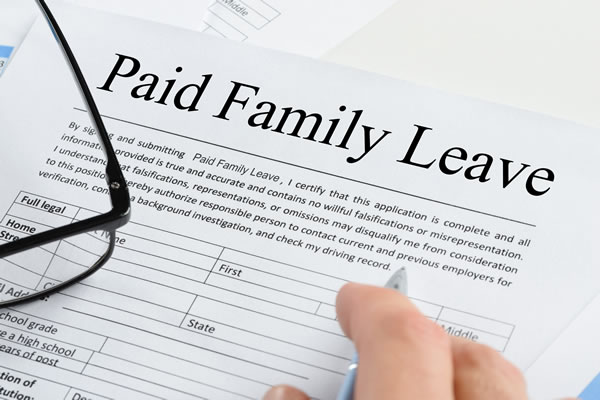FMLA Lawyers that Get Results
From the birth or adoption of a child, to medical emergencies and unexpected diagnoses, life throws us a lot of curveballs. During these stressful times, caring for and protecting your family is of the utmost importance and you shouldn't have to worry about losing your job while doing it. The Family Medical Leave Act (FMLA) is a federal law that entitles you to take up to 12 weeks of unpaid, job-protected leave for certain family and medical reasons.
In addition, beginning in 2021, all Massachuestts employees become eligible for the state specific Paid Family Medical Leave Act (PFMLA). PFMLA is a state statute that mirrors the FMLA federal statute but provides employees greater benefits and protections than the FMLA. For example, under the PFMLA employees will be entitled to up to 20 weeks of protected leave in order to treat their own serious health condition. The PFMLA also provides compensation for employees during periods of protected leave and provides employees with even greater protections than the FMLA from retaliation and discrimiantion for taking the leave. PFMLA and FMLA are designed to complement and to run concurrently with one another.
Unfortunately, not all employers follow the law correctly, so it's crucial to understand your rights and protections. If you believe you may qualify for FMLA but are experiencing resistance from your employer or believe that you are a victim of FMLA discrimination, harassment or retaliation, an experienced FMLA attorney like can help.
Do I qualify for the Family Medical Leave Act?
Not every employee is entitled to protected leave under the Federal FMLA. Generally, employees are eligible for FMLA leave in order to address their own serious health condition, to care for a spouse, parent, or child with a serious health condition, for the birth or adoption of a child, or to care for a family member who is in the military.
In addition, employees are only entitled to FMLA protections if they work for a "covered employer." For example, a private company must have at least 50 employees within a 75-mile radius to be considered a covered employer. However, the Family Medical Leave Act applies to all government employers (federal, state, and local entities), regardless of number of employees.
Employees also must have worked for a covered employer for at least 12 months and have worked at least 1,250 hours in the 12 month time (the 12 months do not need to be consecutive) preceding their leave in order to be eligible for FMLA leave.
Do I qualify for Massachusetts Paid Family Medical Leave?
Beginning in June 2021, all employees in Massachusetts will become eligible for PFMLA benefits and protections. PFMLA protections are afforded to all Massachusetts employees regardless of the size of their employer or length of service with their employer .
What are my protections and benefits?
During your FMLA leave, employers are required to maintain your current health coverage and benefits as usual. Employers are also required to continue the same coverage and benefits once you return. During PFMLA leave, you are also entitled to paid leave during any period of absence. To calculate the amount of paid benefits, you can use this calculator: https://calculator.digital.mass.gov/pfml/yourbenefits/
Upon returning from PFMLA or FMLA leave, you are entitled to the reinstatement of your position before you left for leave or an equivalent position. While your reinstatement rights are significant, they are not unlimited. For example, FMLA does not protect you from layoffs that would have occurred regardless of your protected leave.
FMLA situations are not one-size-fits-all, and your protections can vary based on your circumstance. When in doubt, always call an FMLA attorney who can help you understand your rights, the FMLA law in general, and answer any questions you may have.


How do I go about asking for FMLA or PFMLA leave?
To formally request leave, you will have to follow your employer’s current policies unless unusual circumstances prevent you from doing so. Your employer should have FMLA and PFMLA guidance available for you in the form of posters, handouts, and handbook policies. When applying for FMLA or PFMLA leave, you will have to provide sufficient information for your employer to determine whether or not you are eligible for the leave. Please be sure to answer these questions to the best of your ability, as failure to comply with these questions may leave you unprotected.
Whenever possible it’s advisable to give your employer at least 30 days notice before taking FMLA leave. For more unforeseeable situations, you should speak to your employer as soon and as practical to allow enough notice. However, failure to give 30 days notice does not mean that your FMLA leave start date will be delayed.
During your FMLA leave, your employer does have the right to check-in on you and/or require medical certification to support your reasonings for FMLA leave. To avoid any conflict or issues during your leave, be sure to discuss expectations with your employer beforehand.
What is considered FMLA/PFMLA harassment or discrimination?
The purpose of the Family Medical Leave Act is to protect your right to be able to care for yourself and your family without the worry of losing your job. Because of this, employers are prohibited from harassing or discriminating against an eligible FMLA employee.
Employers are not allowed to refuse to authorize FMLA leave for eligible employees and they cannot discourage an employee from taking FMLA leave. Employers are prohibited from intimidating employees to not take FMLA leave by threatening them with the loss of their job, health coverage, or other benefits.
Upon return, it is illegal to terminate an employee due to his or her leave (unless they are unable to perform their job). Additionally, employers are prohibited from utilizing the fact that you went on FMLA leave as a negative factor in employee performance, bonus structures, and more.
Do I need an FMLA lawyer?
If you believe your employer is discriminating against you because of your need for FMLA or PFMLA leave, you have the right to act. The Family Medical Leave Act and the Paid Family Medical Leave Act are complex statutes and it can be difficult to understand what you are and are not entitled to. Luckily, Greene & Hafer is here for you. We’re available to answer any and all of your FMLA questions and advise you in legal counsel if you are harassed or discriminated against.



